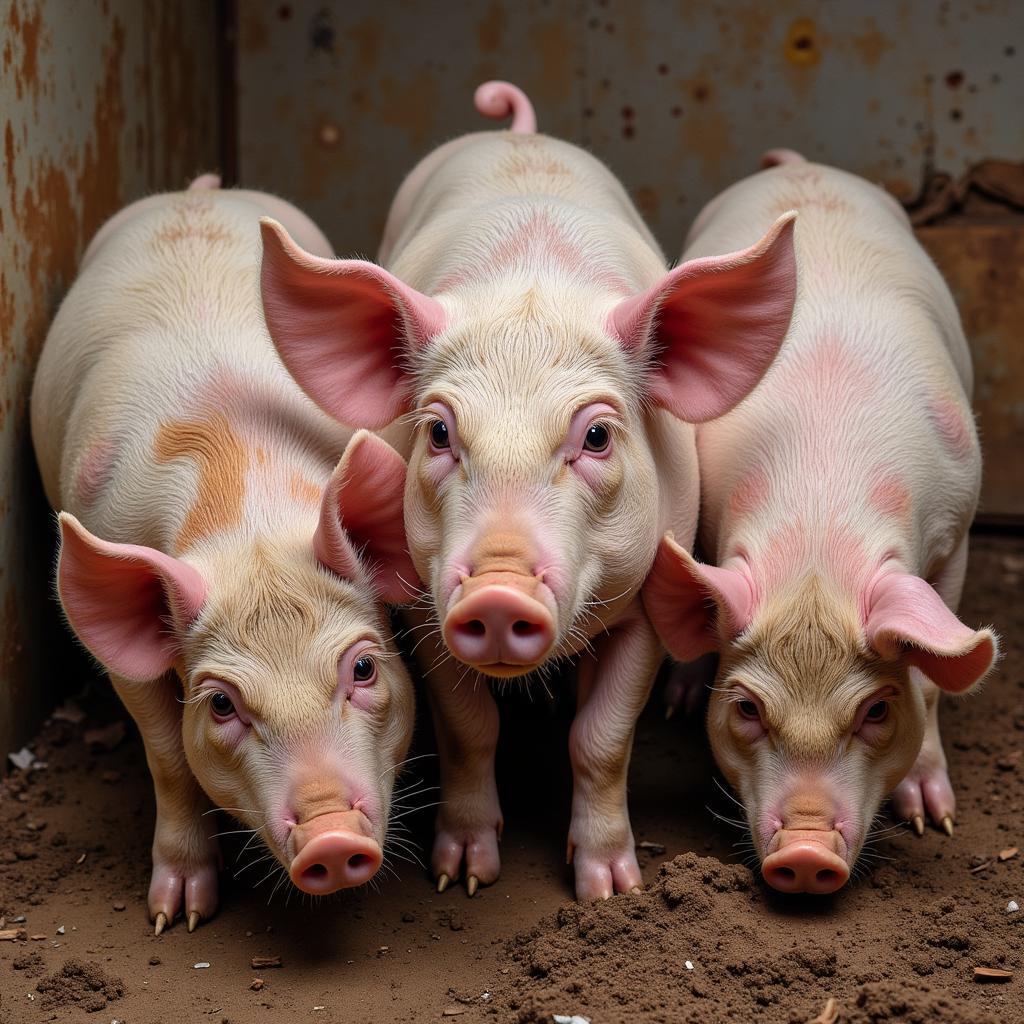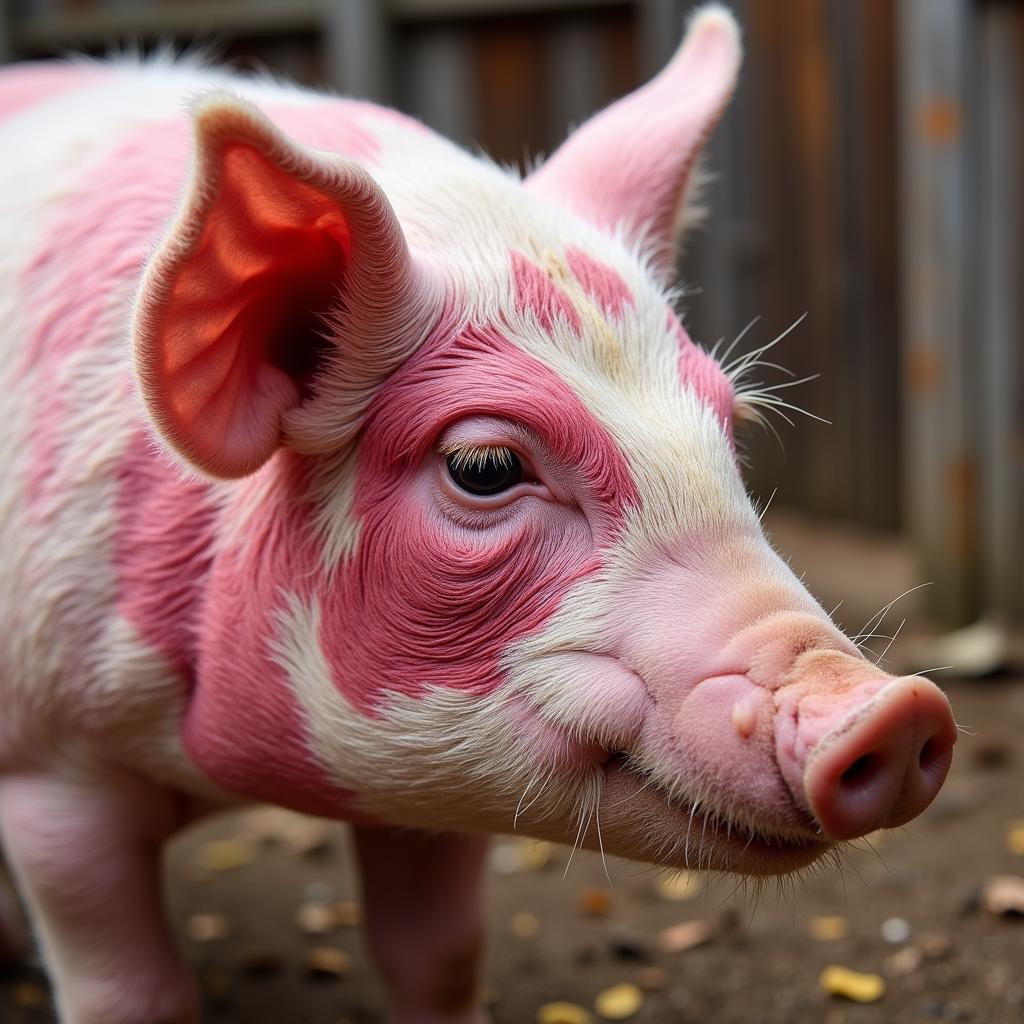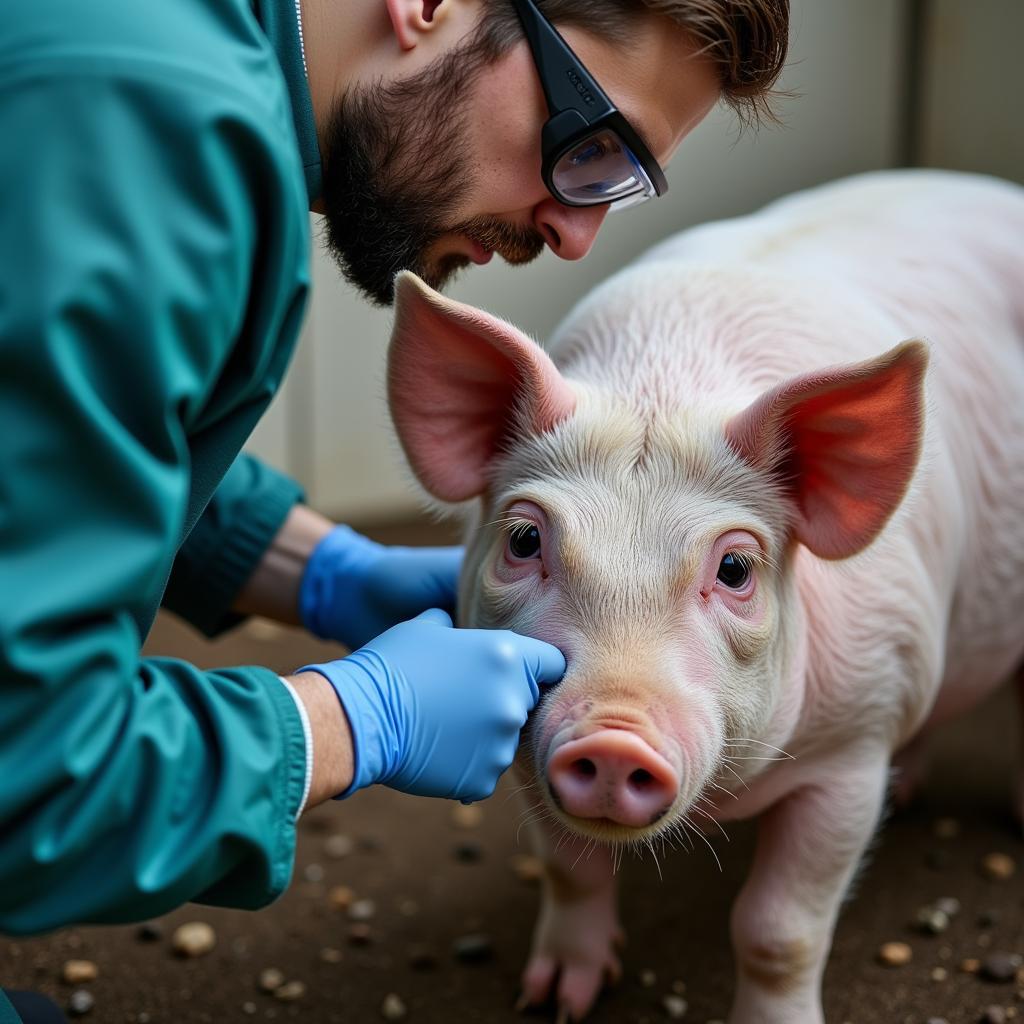African Swine Fever Symptoms: A Comprehensive Guide
African swine fever (ASF) is a highly contagious and deadly viral disease that affects both domestic and wild pigs. The virus responsible for ASF does not infect humans, but it poses a significant threat to the global pig population and the pork industry. Early detection and control measures are crucial in preventing the spread of this devastating disease. Understanding the symptoms of African swine fever is essential for pig owners and anyone involved in the pig industry.
 African Swine Fever Symptoms in Pigs
African Swine Fever Symptoms in Pigs
Recognizing the Signs of African Swine Fever
African swine fever presents with a wide range of symptoms, making it challenging to diagnose based solely on clinical signs. The severity of symptoms can vary depending on the pig’s age, health status, and the virulence of the virus strain.
Acute ASF Symptoms
Acute ASF is characterized by a sudden onset of severe symptoms, often leading to death within a few days. These symptoms include:
- High Fever: Infected pigs typically develop a very high fever, reaching up to 106°F (41°C).
- Loss of Appetite: Pigs with ASF often lose their appetite completely and may refuse to eat or drink.
- Lethargy and Weakness: Infected animals become extremely weak and lethargic, spending most of their time lying down.
- Respiratory Distress: Pigs may exhibit difficulty breathing, coughing, and nasal discharge.
- Red or Bluish Discoloration of the Skin: Particularly noticeable on the ears, snout, and limbs.
- Vomiting and Diarrhea: Often bloody, indicating internal bleeding.
- Neurological Signs: Incoordination, tremors, and convulsions may occur in some cases.
 Pig with Skin Discoloration from African Swine Fever
Pig with Skin Discoloration from African Swine Fever
Chronic ASF Symptoms
Chronic ASF presents with milder and less specific symptoms, often leading to prolonged illness and gradual weight loss. These symptoms include:
- Loss of Appetite and Weight Loss
- Intermittent Fever
- Skin Lesions and Ulcers
- Respiratory Problems
- Reproductive Issues: Abortions, stillbirths, and infertility.
What should I do if I suspect African swine fever?
Immediate Action is Crucial! If you suspect African swine fever in your pigs or wild boar, it is vital to:
- Isolate Sick Animals: Immediately separate any pigs showing symptoms of illness from the rest of the herd.
- Contact Veterinary Authorities: Report your suspicions to your local veterinarian or animal health authority without delay.
- Implement Biosecurity Measures: Practice strict biosecurity measures to prevent the potential spread of the virus. This includes controlling access to your farm, disinfecting equipment and vehicles, and changing clothes and footwear after contact with pigs.
Expert Insight
“African swine fever is a highly contagious and devastating disease with no effective treatment or vaccine currently available,” says Dr. Agnes Mbwambo, a veterinarian based in Tanzania. “Early detection and reporting are crucial in controlling outbreaks and minimizing the economic impact on the pig industry.”
 Veterinarian Examining a Pig for ASF
Veterinarian Examining a Pig for ASF
Conclusion
African swine fever poses a significant threat to pig populations worldwide. Early recognition of the symptoms and immediate action are paramount in containing outbreaks and preventing the spread of this deadly disease. Farmers, veterinarians, and stakeholders in the pig industry must work together to implement effective biosecurity measures and raise awareness about African swine fever to safeguard animal health and the global food supply.
Frequently Asked Questions (FAQs)
1. Can humans get African swine fever?
No, African swine fever does not infect humans. It is a disease that only affects pigs.
2. Is there a cure for African swine fever?
Currently, there is no cure or vaccine available for African swine fever.
3. How does African swine fever spread?
ASF spreads through direct contact with infected pigs, contaminated feed, water, equipment, and clothing.
4. What should I do if I find a dead wild boar?
Do not touch the carcass. Report it to your local wildlife or veterinary authorities immediately.
5. How can I protect my pigs from African swine fever?
Implement strict biosecurity measures, source feed and water from reliable sources, and avoid contact with other pig farms with unknown health statuses.
Need Assistance?
For immediate support regarding African Swine Fever, please contact us:
Phone Number: +255768904061
Email: [email protected]
Address: Mbarali DC Mawindi, Kangaga, Tanzania.
Our dedicated customer care team is available 24/7 to assist you.


